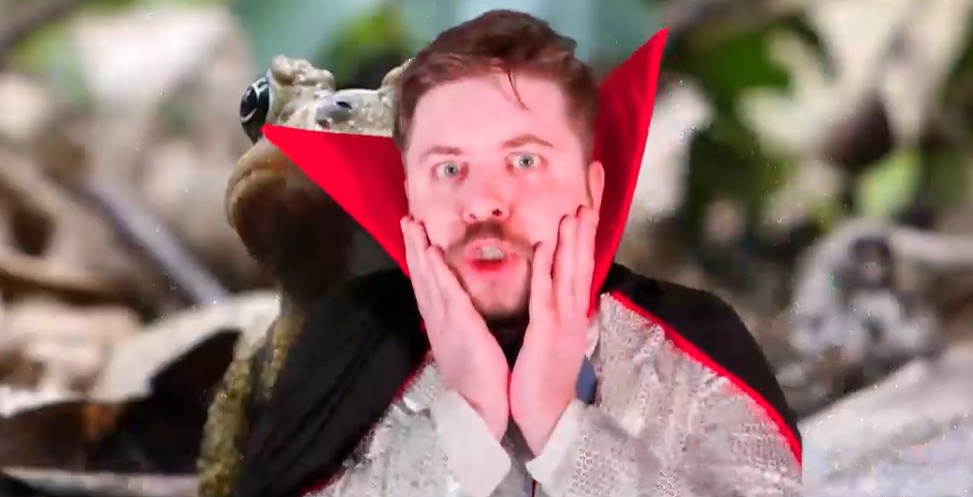Steele entered the creative scene with keen visual instincts and an irreverent narrative style after being raised in Somerset and receiving his training at Kingston University. His ability to modernize myths was demonstrated by his early comic Pantheon, which satirized Egyptian deities. It was especially inventive, evoking comparisons to Neil Gaiman’s skill at fusing contemporary fears with legend. Steele had established himself as a voice willing to use supernatural allegories to tackle difficult subjects like identity, death, and self-acceptance by the time DeadEndia debuted in 2018.
Steele’s defining work was Dead End: Paranormal Park, which debuted on Netflix in 2022 and was adapted from DeadEndia. The show followed Norma, a Pakistani-American girl with autism, and Barney, a transgender boy, as they navigated a haunted theme park. Its goals were remarkably similar to those of Rebecca Sugar’s Steven Universe, in which inclusivity was the main plot point rather than a supporting one. It was especially helpful to many fans because it provided young LGBTQ+ viewers with characters that reflected their own experiences. Some viewers praised Steele’s creation for dramatically lowering feelings of loneliness, and social media responses characterized the show as life-saving.
However, what some considered revolutionary turned into a contentious issue for others. Netflix came under fire for allegedly “indoctrinating” kids with progressive ideals, and Steele’s name soon became associated with larger cultural conflicts. When posts purportedly written by Steele surfaced online, ridiculing the passing of conservative activist Charlie Kirk, the dispute intensified. Steele called the claims slanderous and denied celebrating Kirk’s murder, but the story had already begun to circulate. Steele’s role in an outrage cycle that was noticeably louder and faster than in earlier periods of media criticism was amplified when Elon Musk seized the opportunity and urged his followers to cancel Netflix.
Hamish Steele – Key Information
| Category | Details |
|---|---|
| Full Name | Hamish Steele |
| Date of Birth | 18 October 1990 (Age 34) |
| Birthplace | Glastonbury, Somerset, England |
| Nationality | British |
| Profession | Animation Director, Comic-Book Artist, Writer |
| Known For | DeadEndia (book series), Dead End: Paranormal Park (Netflix) |
| Books | DeadEndia: The Watcher’s Test (2018), DeadEndia: The Broken Halo (2019), Pantheon (2017), DeadEndia: The Divine Order (2024), Go-Man: Champion of Earth (2025) |
| TV Work | Dead End: Paranormal Park (2022), Badly Drawn Animals, The Tall Tales of Urchin |
| Awards | Eisner Award-winning creator |
| Website | hamishsteele.co.uk |

More about the streaming environment was disclosed by the Musk backlash than by Steele. Netflix had already started to reduce experimental programming because it was feeling pressure to appeal to both mass and niche audiences. Survival became challenging for a show like Dead End: Paranormal Park, which reflected marginalized identities but failed to generate blockbuster ratings. Despite being canceled after two seasons, its cultural impact is still very evident, serving as a reminder that representation is important even when programming is determined by profitability.
Steele has remained influential despite everything. Go-Man: Champion of Earth (2025) demonstrated his versatility by delving into superhero parody, while DeadEndia comics expanded their readership in 2024 with The Divine Order. His ability to switch between character-driven drama, horror-comedy, and mythology is truly amazing. Compared to peers who frequently stick to a single genre, this ability makes him extremely versatile.
The vulnerable position of creators in the digital age is further highlighted by Steele’s story. Steele is a mid-level creator caught in a cross-cultural crucible, unlike J.K. Rowling or Dave Chappelle, whose controversies are the result of remarks that overshadow their billion-dollar platforms. His situation is remarkably comparable to how social media turns minor incidents into grandiose stories, forcing people to defend themselves against assaults that are much bigger than their own platforms. Steele describes the experience as leaving him “on the down low for the foreseeable,” which encapsulates the fatigue that many creators experience when they are the target of persistent online harassment.

